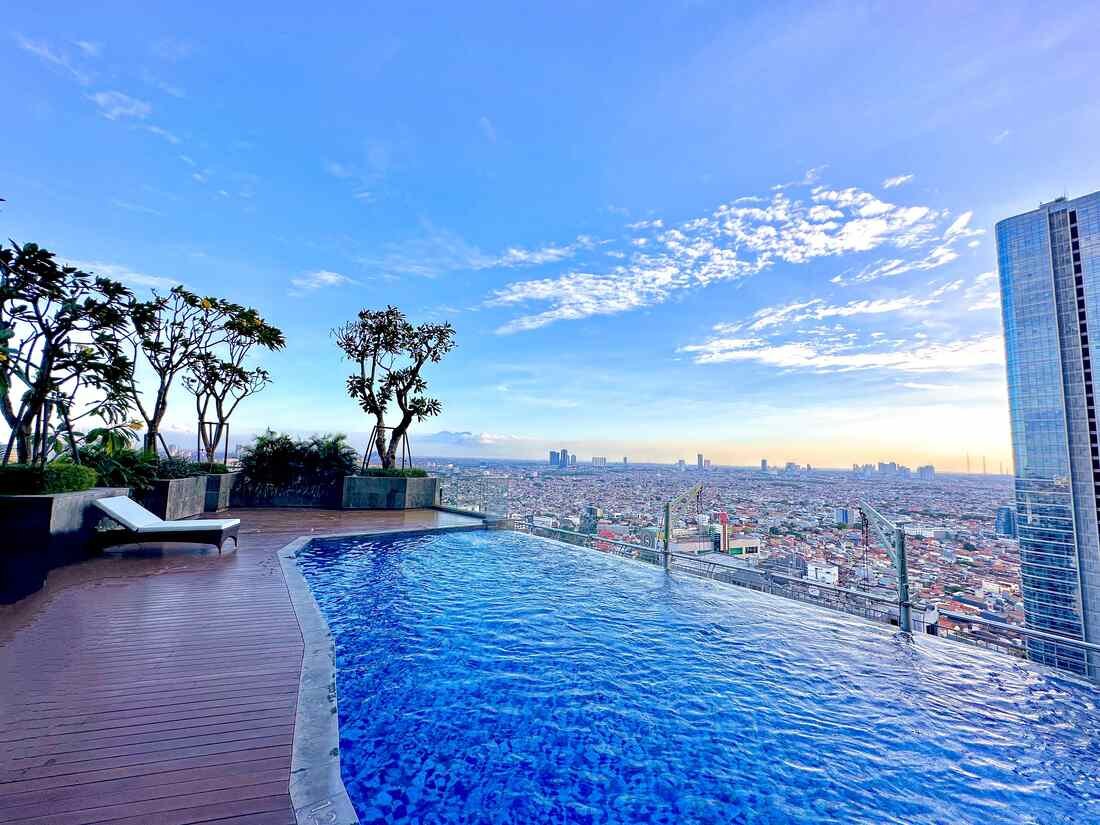Renting in Singapore: things to know BEFORE signing your rental agreement

Renting in Singapore
The rental of your dreams… Bingo! You have found the rare pearl in the neighborhood of your dreams in Singapore. And now is the time to sign your rental agreement. Renting in Singapore is quite easy, now you should know things to know BEFORE signing it.
Why don’t people read their rental agreement?
Many people simply neglect to read the contract. Or else skim it quickly. As much out of laziness (who wants to read 14 pages of contract in English with lots of legal terms?) as out of ignorance (because the agent tells them that the contract is supposedly standard).
An important and relatively standard document
The rental agreement is an important document. And although sometimes it seems that the contracts are relatively standard, there are no unique models. Often called “Tenancy Agreement” or just “TA”, the contract is a private deed in Singapore. Owners can therefore put everything (and sometimes anything) in the contract as long as it is not illegal.
Sometimes the content is often blurry. Blur maintained by the agents (voluntarily) and by the French themselves (involuntarily). Sometimes landlords add or remove clauses in the contract.
For example it is boring to repaint an apartment between two tenants. Because you can “lose” several days of rent. So some owners will ask you to repaint the apartment at your expense before returning the keys.
What should be done before signing a rental contract?
Whether for a condo, a house or an HDB, it is better to take a few precautions BEFORE signing a rental contract. And above all, check certain information so as not to have any unpleasant surprises.
1- Do I have to make a file to rent?
No. In Singapore it is not customary to ask for payslips, to have guarantors or the like. The system is simplified to the extreme: you have to pay your rent to stay and that’s it.
So no need to come with payslips, account statements or your parents’ income. You can do this to increase your chances but it is not mandatory.
It is customary to pay the first month’s rent in advance + the deposit and that’s it. Only thing mandatory: you must provide a copy of your passport and your residence permit (Employment Pass or other).
2- Is it normal to pay two months deposit?
No. The practice is to pay one month deposit. It does not matter the length of the lease or the size of the apartment. That being said, no law sets the amount of the deposit.
Some agents try to ask for two months deposit in the case of houses by evoking the price of the property. This is a ridiculous argument because the rent is already a reflection of the price of the property.
Another reason, less avowable, which pushes the owners to ask for two months of deposit. If your deposit is greater than SGD10,000, in the event of a dispute, the current affairs court is no longer competent. And you will have to go to the next level and hire a lawyer (longer, more expensive and therefore more dissuasive).
3- Are agents mandatory for tenants?
No. To make a rental agreement, the agent of the owner is sufficient. You do not need to hire your own agent. You can sign directly with the owner and his agent.
Please note that an agent cannot collect agent fees from the tenant AND the landlord at the same time. Because in this case it is a conflict of interest (and above all it is prohibited by law).
4- Who pays agent fees for rentals?
You only pay agent fees if you have hired an agent to do the research for you (the agent has a mandate or contract with you).
If you find an apartment through PropertyGuru or 99.co, then you don’t need to pay any agent fees. These are the responsibility of the owner.
[author’s note] If you have any doubts, ask the agent if he is the owner’s agent. If he answers anything other than yes, you can ban him immediately. This is a tactic often employed by agents in Singapore which does not have apartments. But put listings on real estate sites to attract customers and then charge them a fee.
5- Who pays the stamp duty?
Negotiable. The Stamp Duty is the registration of the contract with the authorities in Singapore. It is paid either by the owner, or by the tenant, or by both. The payment of it (who pays it) must be specified in your contract. And above all a copy of the Stamp Duty must be given to you.
Why is this important? Because a Tenancy Agreement is NOT proof of residence in Singapore for the authorities. Only Stamp Duty counts. It is also a good way to see that the contract is legal and that you are not the victim of a “black” rental.
It’s never too late to claim Stamp Duty. Tell your agent / landlord that you are doing your PR (Permanent Resident) file and ask him for a copy. If he is unable to give it to you, I’ll let you guess why 😉
[author’s note] Do I have to pay Stamp Duty for a room rental? If you rent a room, you do NOT have to pay stamp duty, it is simply illegal. Stamp duty only applies to apartment rentals and not to rooms.
6- What are the points to check in a rental contract?
There are so many that I made an article about them! More seriously, before signing the rental of your apartment, I can only strongly advise you to READ your contract. Simply. And to remove the clauses which seem abusive to you.
7- The agent asks me to pay a deposit to secure the transaction
It’s a scam, plain and simple. On the one hand, agents cannot collect rent (see next question), on the other, signing a contract is sufficient to secure a transaction.
Most scams of this type play on the fact that some French people are stressed at the thought of not having accommodation when they arrive in Singapore. It’s all done over the internet and you’ll never see your down payment (and you’ll get even less housing).
[NDLA] it is not customary to pay 6 or 12 months’ rent in advance. If the agent asks you such a request, there is something fishy.
8- Can the agent collect the deposit or the rent?
No. Agents are NOT authorized to collect money for rent, stamp duty or deposit. It is prohibited and it is marked in black and white on the sites of the Singapore authorities (Council of Estate Agencies, the official authority in charge of real estate agents in Singapore)
“Salespersons are not allowed to handle any transaction monies, including rental deposits and rentals. Transaction monies also include option fee, downpayment, stamp duties, deposits and sales proceeds, in the sale or purchase of your property”
They can only receive commissions. You must pay the money directly to the owner (to the bank account in his name) and NOT to the agent. And if he insists, it is that a priori there is a scam somewhere.
9- Should I hire a real estate agent?
May be. If you don’t have time and want to be quiet, then yes. The main interest of an agent is to save you time and take care of the worries for you.
A good agent will meet you, take notes of your needs, select apartments, take care of the schedule of visits and negotiations. And it will help you understand your contract. Bonus, some agents also do the tours with their car (super convenient, especially if you don’t know the city).
[NDLA] flee the recommendations of third parties such as relocation agencies or the secretaries of your office (They receive commissions). If you have the time and you know exactly what you want then an agent is largely dispensable.
10- Is an inventory and an inventory of fixtures mandatory?
No. But it is especially useful if you want to review your deposit;)
11- The agent organizes visits to my house to sell the apartment, is it legal?
Yes. As long as it’s written in the contract. And most rental contracts include a very vague clause relating to the potential sale of the apartment. For example :
“To permit persons with authority from the Landlord at all reasonable times by prior appointment to enter and view the Premises whenever the Landlord wants to sell the Premises”
Most of the time no problem. But otherwise you will have to “undergo” visits at any time and especially the owner can drag his feet for the work since he wants to sell.
If you realize that the apartment you want to rent is also available for sale, it is better NOT to sign.
12- The owner asks me to hire a cleaning company at the end of the lease, is this normal?
Negotiable. Getting the housework done is one thing. Whether the obligation is spelled out in the contract is another.
If it’s written on your contract then no choice (I already told you to read that fucking contract). In this case, ask if the owner has a company he likes, this will cover you on the quality of the household.
Otherwise, rolling up your sleeves to clean will be enough (or call your maid more surely).
13- The owner did not write his address on the contract, is that normal?
No. The name and address of the owner and the tenant must be indicated on the contract. If you do not have an address, then the address of the property being rented will automatically be used.
Why is it mandatory? In the event of a dispute, the court needs the addresses for the formal notices. Regarding the owner’s telephone number, it remains at his discretion and it is NOT mandatory.
Another important point to note: if your landlord lives abroad, the Small Claims Tribunal will not have jurisdiction. You will be forced to hire a lawyer and go to the next level. Much more costly in terms of time and money.
14- In the event of a dispute with my landlord, what should I do?
Go to the Small Claims Tribunal, which deals with small cases that are simple to deal with in order to unclog the other Courts.
Please note that the Small Claims Tribunal is competent for cases up to $10,000. If your dispute concerns the return of the deposit and it is greater than $10,000; then you will not be able to use the Small Claims Tribunal.
The simple summons to the Small Claims Tribunal (very simple to do) is sufficient to settle disputes in most cases. Do not hesitate to go to the end of the process if you are sure of yourself. Many friends have won their case against their owner.
15- Can I rent for 3 months only?
Yes. This is a new provision of law which dates from July 1, 2017. The minimum duration of a rental in Singapore has been reduced from 6 to 3 months. It is therefore legal to rent a property for only 3 months.
Many agents and owners do not know this (or rather ignore it) so do not hesitate to remind them (Home rentals: Stay of 3 months now allowed).
On the other hand, even if it is legal, few owners offer properties for three months because it is just not very practical to find tenants every 3 months. So most of the time, for short term rentals, you will have to consider other options.
16- If I renew my contract, do I have to pay agent fees?
No. It is not mandatory. If in the drafting of your contract, the agent stipulates that the tenant must pay him a commission in the event of renewal then it is just the limit of theft. You already live in the apartment so there is no research, visits or negotiations.
Unless you find it normal to charge several thousand dollars just to change the date on a contract, do not pay agent fees when renewing.
What if it’s written in your current contract and you want to stay? No choice, you will have to pay (but in the agent’s copy / paste, have this clause removed for next year).
[NDLA] if you are owners, it is in your interest to pay a commission to your agent during the renewal. This will encourage him to take good care of the tenants and your apartment by managing the relationship for you. For tenants, on the other hand, the interest is much more limited.
Disclaimer: The content of this publication is provided for general information only and does not constitute legal, financial, tax or other professional advice from Bali Home Immo. Some of the information provided in this publication is obtained from a third party source and we do not guarantee that the content of this publication is accurate, complete or up to date. Past performance is not indicative of future performance and should not be used as the basis for any investment decision.
Photo credit: moremilu via Pixabay




